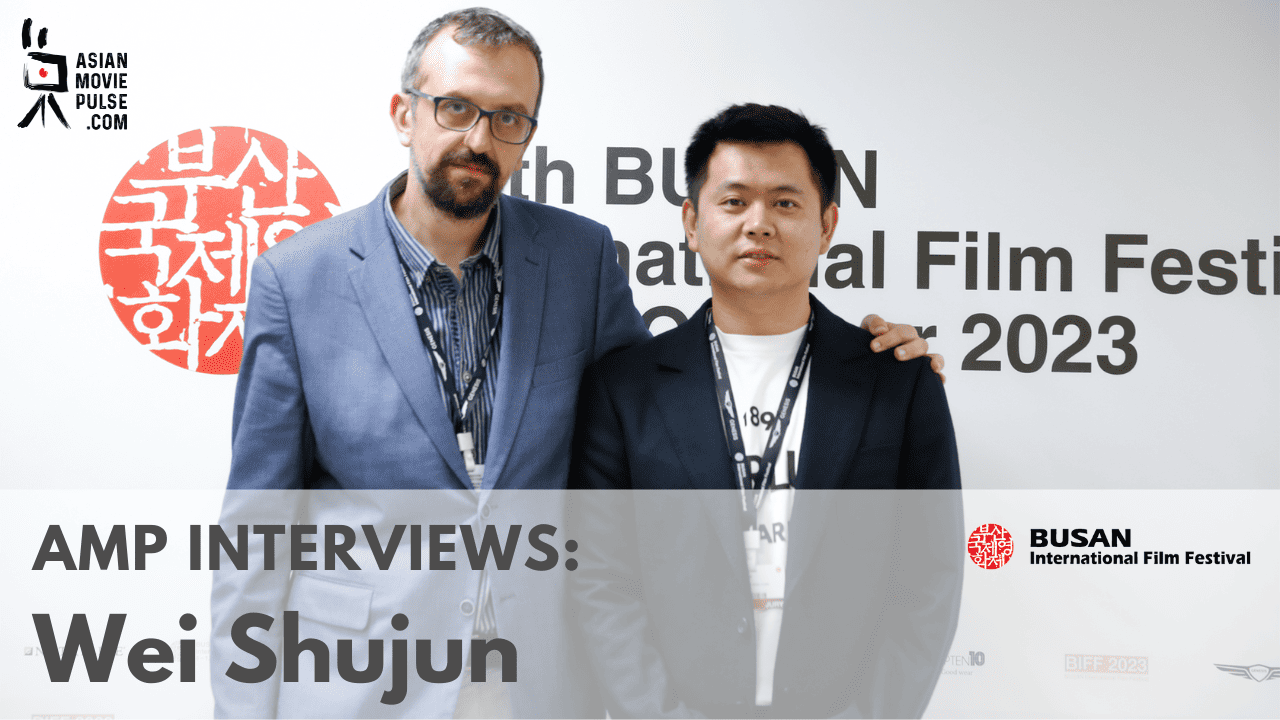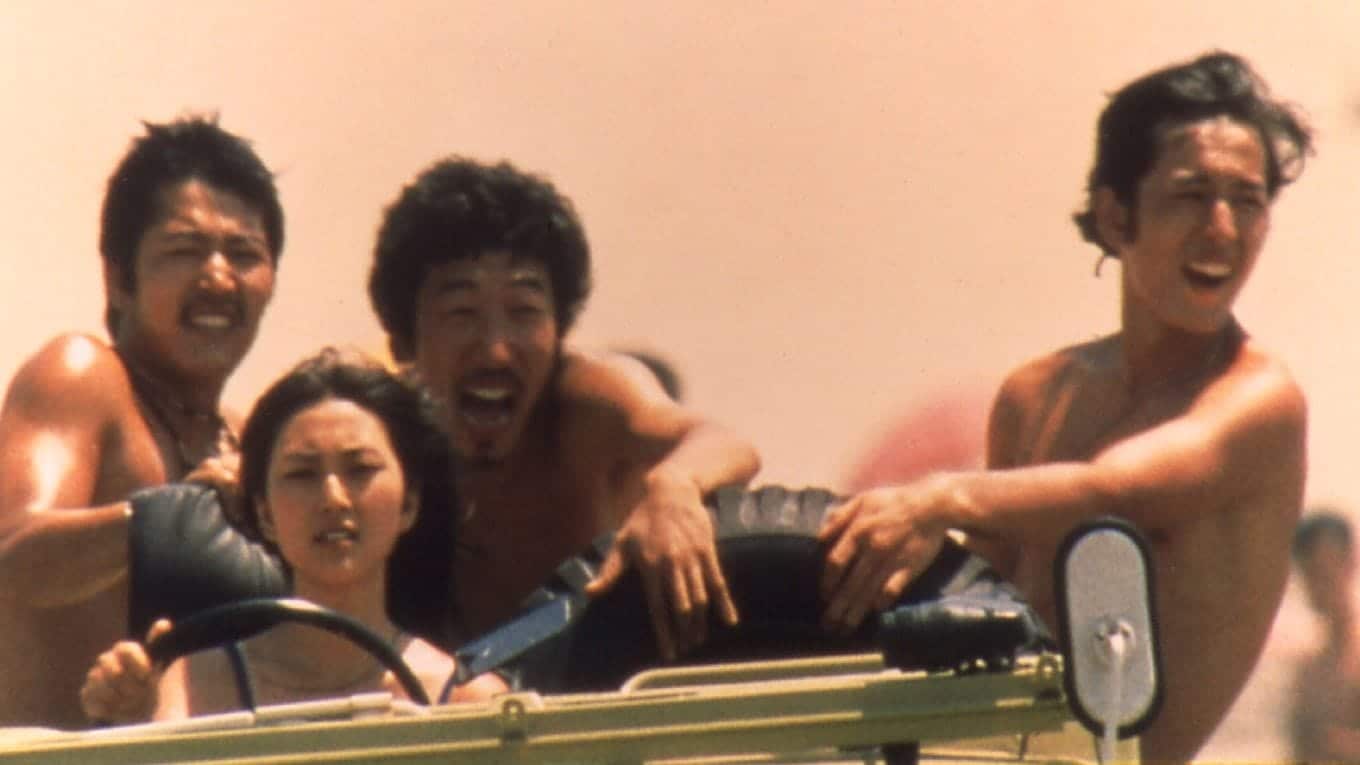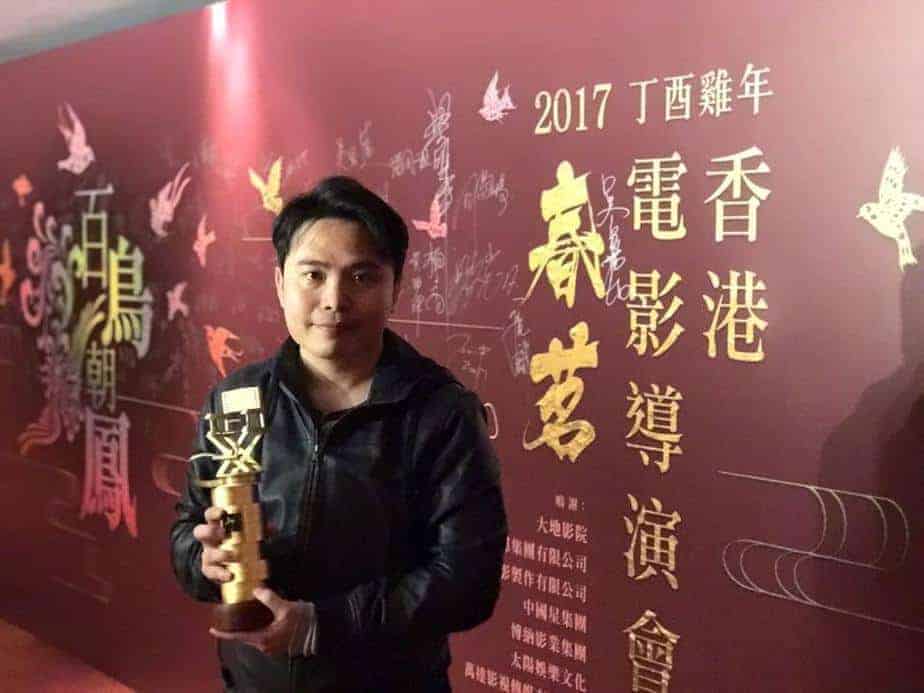Cathy Yan is a Chinese-born American film director, screenwriter, and producer. Yan worked as a reporter for the Los Angeles Times and The Wall Street Journal in New York, Hong Kong and Beijing before turning to filmmaking. After writing and directing several short films, Yan made her feature debut with “Dead Pigs”. The film was inspired by the 2013 Huangpu River dead pigs incident, in which 16,000 dead pigs were found floating down the Huangpu River. Funded by Chinese investors, Yan shot the dark comedy in Shanghai with a bilingual crew then completed the film in New York; “Sixth Generation” filmmaker Jia Zhangke executive produced. “Dead Pigs” premiered at the Sundance Film Festival and won a Special Jury Award for ensemble acting. In April 2018, Yan was selected to direct the Harley Quinn DC Extended Universe superhero film “Birds of Prey”, based on the comic of the same name. Yan was the second woman and the first Asian woman to direct a DC film (or any US superhero film)
On the occasion of “Dead Pigs” streaming on MUBI, we speak with her about the inspiration behind the story and the characters, the perspective of expats, love, the appeal of losers, and other topics
“Dead Pigs” is streaming on MUBI
Can you tell us about the path that led to the production of “Dead Pigs”? How come Jia Zhangke was involved?
I wrote the script and then it took me a little while. I am based in New York, but obviously so much of the movie's story is happening in China and so I would fly to China and try to meet people and get financing and scout locations, particularly for the house, which is so important for the film. I have always loved Jia Zhangke's work so much and I felt that we have the same perspective on the themes we are interested in, in terms of modern China and the ways it has changed, and how all these changes have affected people. I was able to get in touch with him and he immediately signed on to make the movie. I owe him so much, because I was a first time filmmaker and I do not know if I would have been able to make the movie without him lending himself and his name to it. I really appreciate everything he has done for the movie.
The movie is based on a real incident where over 16,000 dead pigs were found in the Shanghai Songjiang section of the Huangpu River, which supplies the city of Shanghai with some of its drinking water. How come you decided to make a movie based on this?
At some point I read about the incident. I used to be a reporter for the Wall Street Journal and I spent time in China covering various topics and I think that all of that and the fact I was born in China and spent a lot of time there, made me take a closer look at the incident, as I wanted to explore it more. Furthermore, at the time, I was still trying to figure things about myself out, and I wanted to explore more how to come to terms with myself and my own life, through my work. Even though the film is not autobiographical, it is very much the sum of my experiences in China, my unique perspective as someone who is Chinese American and has spent a lot of time in China and tries to reconnect with his home country. So, when I read about this crazy, wild incident, immediately I was hooked. Tonally, it spoke to me; it is weird and bizarre but also kind of weirdly funny. And from there, I unpacked who were these characters, who are these humans behind these headlines. I found it to be an extremely compelling and interesting way to talk about change and modernization and the repercussions of all that.
Why were all those pigs damped in the river though?
In real life it is not discussed, they were never able to find out why
You were born in China but you grew up in the US for the most part. How does this affects your whole perspective on the intense modernization that is taking place in China?
So much. The world is changing so quickly and a lot of it has to do with globalization and I see patterns in the ways different countries deal with these problems and these challenges. A lot of what is touched upon in “Dead Pigs”, the themes, are universal and in the last 4 years, it is something I see in America a ton, and also in Europe and around the world. I think that, in a weird way, because I am an outsider in both countries, I am able to have a little more distance as I observe this world, which is what I have always been doing. I am an only child and I bounced around in my childhood, growing up between Hong Kong, China and the US and so I am used at having this perspective, kind of being on both the inside and the outside of what is happening around me.

What was the inspiration behind the five main characters in the film?
They are drawn from my life. For example, Candy is inspired by a real woman. When I was still in the university, I wrote my thesis about these nail houses, which is what Candy's house is. Basically, they “belong” to home owners who do not want to leave to make way for construction. One of the first incidents of this phenomenon happened in Chongqing, back in about 2006. It was a couple who did not want to leave their house but it was the woman who was quite gregarious and really knew how to speak to the press. Candy was inspired by her and her crazy hair etc. Regarding Sean, the American expat, when I was living in China, I had a lot of expat friends, a lot of my university friends actually moved to China after school to have an experience and because there are so many opportunities. Sean was drawn from my experiences with people like that and also by myself, even though I am not a white American man, the experience of being a part of that whole expat circle. Wang is inspired by an uncle of mine and his son is actually named after a cousin of mine. Xia Xia has a little bit of me I would say. So, the whole thing is very personal in that way , I always believed that fact is stranger than fiction and I am more than happy to pull from my own life.
One of the most entertaining scenes in the film comes in the beginning, where the employees of the Candy's beauty parlor are doing this motivational dance in front of the shop. Can you tell us a bit more about this scene?
I wish I could take more credit for this scene. The salon that we shot in, we were scouting one day and they were just doing this dance, it is a pretty big phenomenon in China, it is just a way to make people excited and invested in their work. It was not originally scripted, but I saw it happening and I thought that we had to get that on camera.
There is also a musical-like scene close to the finale. Do you like musicals and did you plan to have that scene in the film from the beginning?
I did, yes. It was on the very first draft of the film and it stuck around. I love musicals, I used to be a dancer and choreographer. Music has such a way to move you and that particular song writer and singer Teresa Teng is also very personal to me; my parents love her, she is very symbolic of nostalgia and optimism in China in the late 80s and 90s. I remember as a kid, driving around with my mother and singing to this song, so it also has a deep relevance for me as well.
One of the themes of the film is the obsession with the West, culturally at least. Is the phenomenon actually so intense?
I do not know if it still as much, I think there is a lot of more nationalism and pride now, but yes, these are real phenomena. This copy-cat architecture, for example, and Sean being hired to be a Western person in essence, that is real too.
It is a small part of the movie, but love is also a theme. Where do you think that love fits in this whole setting of extreme development and westernization?
It is an interesting question. I think it is easy to pit ourselves against each other and part of the film is about exploring what are the things that actually connect us and bring us close to each other. I do not think there is an easy answer to that question. Candy has this deep love for her roots and her history and the home that she created but there is also this relationship she has with her brother, which is more complicated. You can have different kinds of love and oftentimes, you have to sacrifice one for another, so that is what I was exploring: the ways that love connects but also the different types of love.
Zhen and Xia Xia, the two young people in the film, are they heading towards a relationship?
I think it is open to interpretation. I think it is more interesting, even more romantic that they don't end up together. She takes this experience that she has and decides to break away from her life, her sort of gilded cage, and take a risk and do something else and he does too. Maybe it is a bit of a young love a summer love, and it doesn't even have to be a romantic love. There is an exploration of all these different kinds of love, the way we are connected to each other as humans. That is a very specific type of love which is not like “happily ever after” or even romantic. They needed each other at that moment and they learned from each other and that experience is going to affect them deeply for the rest of their lives.
Zhen throws himself in front of cars to make money. How did you came up with that idea?
I am telling you, I wish I had come up with all those ideas, but actually, this is also a phenomenon in China , it really happens. It is pretty dark if you think about it
Why does Zhen lie to his father about what he is doing?
I don't want to fully explain it, but I think there is a really big cultural and generational gap between my generation in China and our parents. So much has changed in the past 30-40 years, I think there is an element of distance between them and I think anyone can understand the concept of wishing to make your parents proud and if you are not particualrly proud and happy of where you are in your life, there is the dilemma between protecting your parents from that or just tell them the truth. It is very easy to say a small, white lie which then blows up. I do not think it was a deliberate decision by Zhen.
The protagonists are all very likeable, but they are also what society perceives as losers. What is the appeal of people like that you think?
(laughter) I think we are all losers. I think that film is a way to empathize with people and I just find them more interesting and I think we actually gravitate more towards rooting for David, the underdog, against Goliath. Similarly, I just don't think it is interesting to watch someone succeed in everything.
Can you tell me a bit about the casting of the film, and Vivian Wu in particular?

She is great, I have been a long-time fan of hers, there are only so few people who can play that role, because she has to speak Cantonese, Shanghainese and Mandarin and it is such a big and vivacious role. I always had her on my mind, but as soon she read the script, she really liked it and as soon as we had a meeting, she was set. I have actually known David Rysdahl, who plays Sean, since my first short film in NYU, I cast him and then we stayed friends. I feel he has such vulnerability and is such a good actor. He had never been in China before, which I thought was perfect because he experienced China the same way Sean does. Zazie Beetz who plays Angie is David's fiance, so she just came along for the ride and I adore her, I am big fan and that just worked itself out. Mason Lee who plays Wang is Ang Lee's son and he has such an interesting story; he grew up in the US but he moved to China and to Taiwan to understand better where he is coming from, and to learn Chinese and develop himself as an actor in China. I thought that was such an interesting perspective and it was a huge challenge for him to play a low-class bus-boy, local Chinese guy. He actually spent some time busing in a restaurant and sleeping in the dorms, to better understand the perspective of the character. I had seen Jia Zhangke's “A Touch of Sin” and I always thought Meng Li was fantastic in it. I kind of wrote the character of Xia Xia for her, and I just knew that she could do it. Haoyu Yang was a lucky find of our casting director in Shanghai. He was kind of younger than the role of Old Wang so we had to age him a bit, but I am really happy with the whole cast.
Since the cast comprises of both veterans and young actors, was your approach towards them different?
No. Every actor is different so you have to give them a different approach, but the way I like to work with actors is to give them a lot of flexibility and have them react. I actually wrote the script in English and then it got translated in Mandarin, because I speak Chinese but my English is better than my Chinese. Then it had to be translated yet again to Shanghainese. Therefore, we did not stick to it so much, and I feel there is something very liberating about not being a slave to the dialogue. I think this approach allowed for these great scenes and incredible performances. That has become the way that I like to work actually, giving the actors a lot of freedom, instead of making them feel they are just recycling lines all the time.
After “Dead Pigs”, you shot “Birds of Prey”, which seems like a big change. How was the transition?
It really is a big change, particurly from a scale perspective. But at the same time, I felt that what I had to do, at least for production, was something thta I have done before and so it did not feel that different to me when it came to making the movie. I thought it was the scale of it and all the people that had invested in the film and all the voices, are in very different movie when you are working in a studio production
















